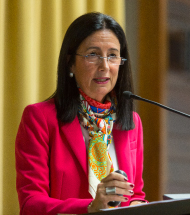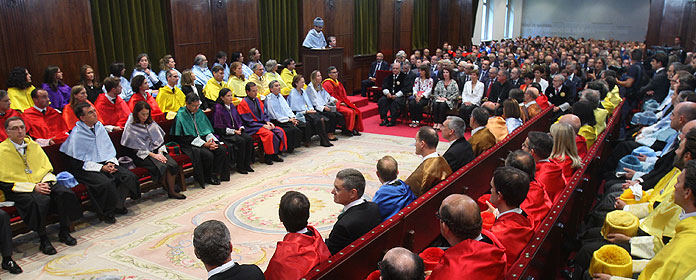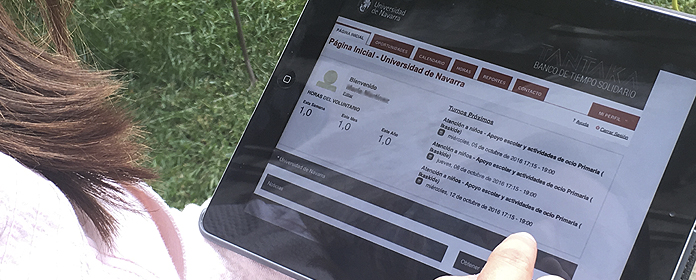"The contribution of women is essential to build a more humane economic, political and cultural Structures
María Blanco, Professor of State Ecclesiastical Law, participated in the Course of update of Canon Law of the University of Navarra.

The professor of State Ecclesiastical Law, Maria Blanco, considers "essential" the specific contribution of women "to achieve, as John Paul II said, a culture capable of reconciling reason and feeling, a conception of life always open to the sense of mystery and the Building of economic, cultural and political Structures richer in humanity". This is what he said at the University of Navarra on the occasion of his participation in the Course of update of the School of Canon Law that gathered more than 200 people.
To this end, he made three suggestions: "The first is to place discussion on women in the Church in its context". And, recalling Mary Ann Glendon, he pointed out that the system of attendance health in the Church is the second largest in the world and is managed mostly by women: "Besides the fact that the Catholic Church has been a pioneer in the Education of women, opening horizons of human, professional and intellectual progress to many young women from countries where they were blinded to any intellectual projection".
In the second place, he suggested that "it would be convenient to support institutionally the work and the actions of women, avoiding that this feminine presence in the organizational and official tasks of the Church appears only as the fruit of circumstantial circumstances". And, thirdly, he suggested "to emphasize more that the genuine position that corresponds to women is not given by the participation in ecclesiastical offices, but by the respect for the gift received". And he said that "there can be no human and humanizing progress if the protagonism of women in the family is not also guaranteed".
In his message, he gave a brief overview of the history of women in the Church. He affirmed that Jesus Christ was "the authentic generator and promoter of their dignity". And he said that since the first century women enjoyed a freedom that was unthinkable in the juridical and social context of the empire. He gave the example of the Abbess of Las Huelgas, who exercised civil and ecclesiastical jurisdiction from 1187 to 1874. And he recalled that the status of women worsened in the leave Age average and in the modern centuries due to the influence of the Roman Law, of the principles of modernity and of the Napoleonic code of 1804. "It was in the middle of the 20th century, when 'by dint of force' women reached levels of presence and projection in the public space similar to those of the averageAge," she said.
He stressed that since the middle of the last century and up to the 21st century, the Church's consideration of the role of women has taken three key steps: "Firstly, the denunciation of any discrimination that marginalizes women in their juridical equality with men; secondly, the shaping of the concepts of the faithful and the laity as constitutive realities of the People of God, with their own mission statement in civil society and in the ecclesial community; and thirdly, the evaluation of the specific feminine as a vital richness in both civil and ecclesial spheres".
He also emphasized what happens today when women are raised as topic of study. B He said that there is a great and noble interest and effort of international organizations, public institutions, projects of research in proposing the topic study of women, but "as the starting point is often wrong, we do not get to where we want to be". And he affirmed that "only by solidly consolidating the anthropological foundations will we be able to protect women and all that is human".



